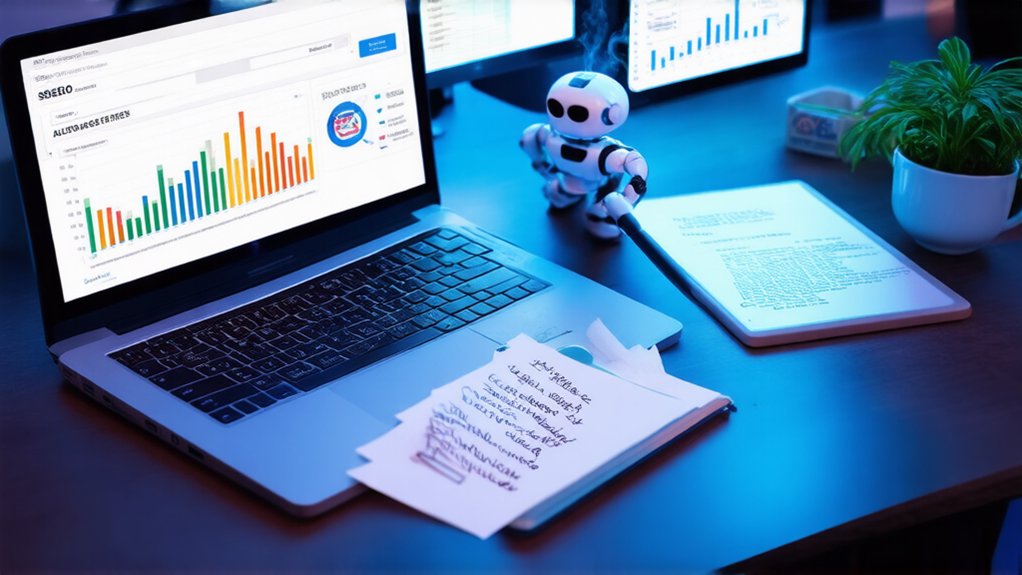As AI weaves its way into the everyday grind of SEO, it’s flipping the script on how we tackle search optimization. Tools like SEOPital and Semrush are revolutionizing the field, automating keyword clustering and content production. Oh, sure, it’s handy—saving hours that used to vanish into tedious tasks. But wait, Alli AI steps in, handling technical and on-page tweaks, while ChatGPT pumps out clearer content. Indexly even zips up page indexing. Yeah, AI’s making SEO less of a headache, but it’s not all rainbows.
Take content strategy, for instance. AI dives into topic brainstorming, pulling relevant ideas from audience data. It crunches keyword research faster than a caffeine-fueled intern. Moreover, platforms like Semrush provide access to 26.1 billion keywords, enhancing the depth of keyword analysis. Imagine this: AI spits out content outlines, boosting readability, or analyzes customer insights to sharpen messaging. And a content calendar? AI builds one that’s focused, no more scattered chaos.
AI transforms content strategy: brainstorming topics from audience data, crushing keyword research, and building focused calendars—bye, scattered chaos!
Still, it’s ironic how these smart tools can miss the human touch—ever read AI-generated fluff that sounds like robot poetry? With basic plans starting at $39 monthly, these tools are becoming increasingly accessible to businesses of all sizes.
Then there’s technical SEO, where AI crawls sites and spots issues like missing tags. Automated fixes? Please, it’s like having a mechanic under the hood. Tools generate schema markup or optimize page speed, cutting through the digital clutter.
But hold on, AI in content creation generates articles, repurposes videos, and summarizes text. It analyzes performance, offering insights that make you rethink your strategy. Ha, as if SEO pros needed more competition from machines.
Optimization gets a boost too. AI tracks KPIs, hunts link opportunities, and monitors rankings. It suggests internal links and spots content gaps—bluntly efficient. Data analysis? AI identifies trends, processes datasets, and sifts through surveys or reviews.
Yet, for all this power, best practices demand human oversight. Build AI assistants, automate tasks, keep learning, and use it ethically. In fact, 84% of SEO professionals report that AI has significantly influenced their strategies. No shortcuts here; slack off, and you’ll regret it. AI’s a tool, not a miracle—use it right, or watch your efforts backfire. Emotionally speaking, it’s a wild ride, but worth the thrill.




